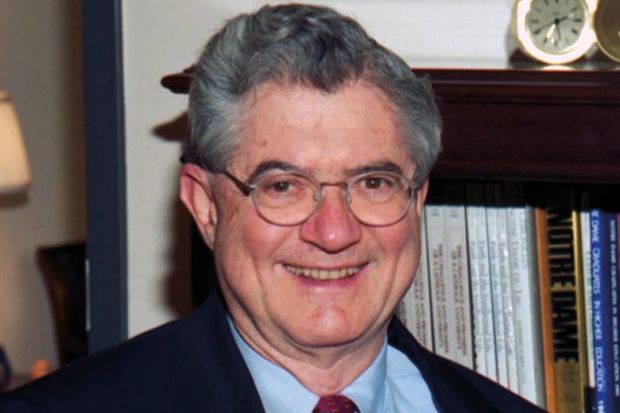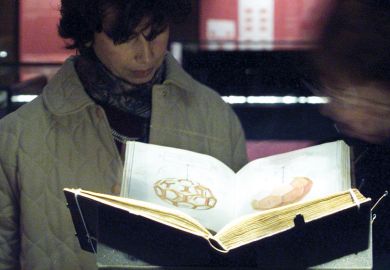A mathematician who played a central role in promoting the University of Notre Dame’s Catholic identity has died.
Timothy O’Meara was born in his parents’ bakery in Cape Town, South Africa in January 1928. He did a first degree at the University of Cape Town (1947), followed by a master’s in mathematics (1948). He moved to the US to pursue a doctorate at Princeton University (1953) and then to yet another continent for his first teaching job, at the University of Otago in New Zealand (1954-56).
In his early years, Professor O’Meara was a keen motorcyclist whose ambitious road trips took him around Africa, Europe and North America. Jean Fadden, whom he married in 1953, soon made it clear that he had to choose between his Vincent Black Shadow and her. After a short period in New Zealand, they settled permanently in the US, where he served for the next six years on the mathematics faculty at Princeton and as a member of the Institute for Advanced Study. In 1962, he joined the maths faculty of Notre Dame, the Catholic research university in Indiana.
An inspiring lecturer, Professor O’Meara also made a major contribution to mathematics through his books. Introduction to Quadratic Forms, first published in 1963, is still in print in the Springer Classics in Mathematics series. Other publications include Symplectic Groups (1978) and The Classical Groups and K-Theory (with Alexander Hahn, 1989).
Appointed chair of the mathematics department soon after his arrival at Notre Dame, Professor O’Meara went on to become the university’s first lay provost from 1978 until he became emeritus in 1996. Although committed to “superior scholarship by a superior faculty”, he once described his core responsibility as “preserving the Catholic character of the university and not being afraid to say it. Some Catholic schools, in adapting to what they thought would be the best way to obtain resources from public agencies, have tried to neutralise or camouflage their heritage. We have not. Interestingly enough, the very fact that we have maintained our self-confidence in what we are has proved to be a positive factor in enabling us to find the resources we need.”
Professor O’Meara was elected a fellow of the American Academy of Arts and Sciences in 1991. He died as a result of complications related to Parkinson’s disease on 16 June and is survived by five children – all of whom received degrees from Notre Dame – eight grandchildren and one great-grandchild.



